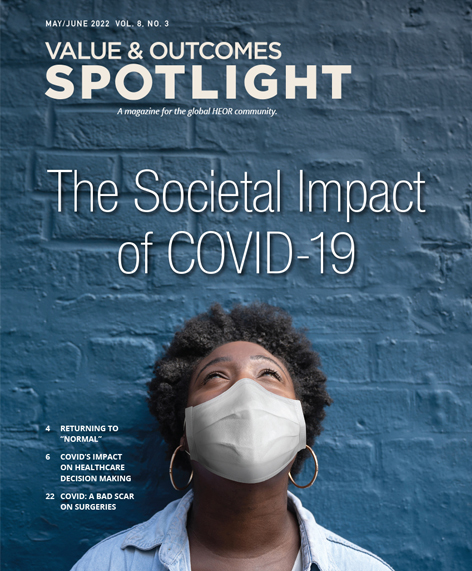Reflections on the COVID-19 Crisis
 COVID-19 has significantly and pervasively affected our lives, created a “new normal” for how we live and, in many cases, rewritten our social contract. Some have suggested that this global pandemic is the worst since the influenza outbreak of 1918. Many believe that it may have caused the largest economic contraction since the Great Depression as evidenced by a 3.9% drop in the median global gross domestic product from 2019 to 2020 according to the International Monetary Fund.
COVID-19 has significantly and pervasively affected our lives, created a “new normal” for how we live and, in many cases, rewritten our social contract. Some have suggested that this global pandemic is the worst since the influenza outbreak of 1918. Many believe that it may have caused the largest economic contraction since the Great Depression as evidenced by a 3.9% drop in the median global gross domestic product from 2019 to 2020 according to the International Monetary Fund.
The pandemic may have arguably created our current global economic crisis, but it unquestionably created a global public health one, as millions of lives were lost and even more lost their employer-sponsored healthcare. Our social fabric was stretched thin as working from home became the norm and for many had to be balanced with at-home childcare as schools transitioned to virtual instruction. Many were faced with isolation that affected their mental health and most postponed necessary, routine, and/or preventive medical care. Clearly, this pandemic has had a dramatic—and most likely permanent and irreversible—effect on individuals and our global society.
For me, traveling was a significant part of my personal and professional life. Often, I traveled to countries around the world with excitement, enthusiasm, and curiosity and without hesitation. In fact, I have set foot on every continent apart from Antarctica (which I hope to eventually do on a vacation or for an ISPOR meeting!) However, my attitude toward travel changed abruptly and dramatically at the onset of the pandemic, and as a result, I had not traveled for business or personal reasons since early 2019.
"Clearly, this pandemic has had a dramatic—and most likely permanent and irreversible—effect on individuals and our global society."
As the ISPOR 2022 conference approached, I found myself exhaustively debating whether to attend, because I was concerned about large gatherings and the risk of contracting COVID-19. My concern was not mostly for myself but for my family and friends, some of whom are elderly and immune compromised; I did not want to risk exposing them if I could avoid it. Many of my concerns were eased after learning that ISPOR required proof of vaccination or negative COVID test results for those attending the conference in person. So, I took the chance and decided to attend the ISPOR meeting; this meeting would be my first face-to-face conference since the beginning of the pandemic.
I took all the precautions: used sanitizer, washed my hands often, wore a mask, social distanced where possible, tested regularly, and was extra careful. The experience was fantastic; seeing colleagues and friends in person after such a long time, attending the plenary, podium, and poster sessions, as well as visiting the exhibit hall and attending various receptions and dinners rejuvenated me! On my way home, I reflected on my decision to attend in person and realized I had made the right one. I felt energized and realized that I desperately needed that face-to-face interaction that I sorely missed. This meeting was extra special to me personally and professionally because of that. After returning, I tested 3 days later and was negative. Only then did I resume visiting my loved ones as I felt it was the responsible thing to do.
"Through evidence generation and stakeholder collaboration, we can make a difference and a positive impact on patients’ lives, even during a major global health crisis such as a pandemic."
As researchers, we also have a responsibility to do our part to conduct evidence-based research or to develop evidence to improve healthcare decisions. It is important to evaluate the COVID-19 crisis from a health economic, medical, and societal perspective—whether it is through patient experiences, clinical studies, economic models, retrospective studies, or real-world evidence. Examples include capturing the societal impacts of COVID-19 in health economic analyses, understanding how the pandemic disrupted the delivery of essential health services, looking at the overall impact of COVID-19 on healthcare decision making, and addressing changes (or lack thereof) in societal behaviors such as vaccine hesitancy among Black and other minority populations. We also need to expeditiously and thoroughly capture the necessary data to inform healthcare decisions in real time as well as to inform policies and policy setting that will impact our society. Through evidence generation and stakeholder collaboration, we can make a difference and a positive impact on patients’ lives, even during a major global health crisis such as a pandemic.
As always, I welcome input from our readers. Please feel free to email me at zeba.m.khan@hotmail.com.
Zeba M. Khan, RPh, PhD
Editor-in-Chief, Value & Outcomes Spotlight

